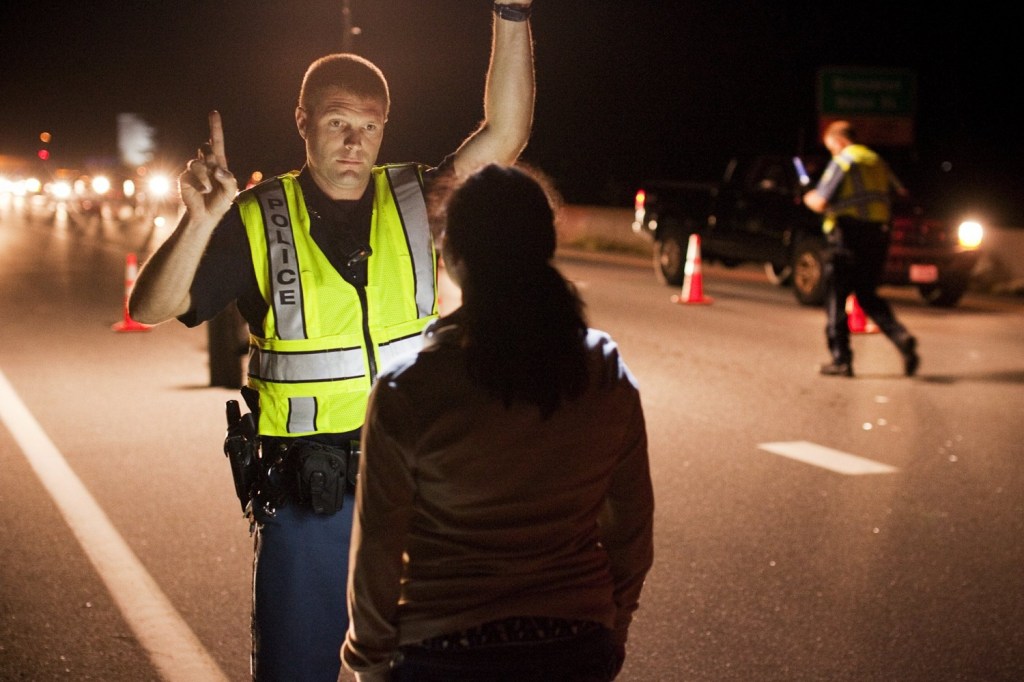Prosecutors, police officers and traffic safety experts say more education about the danger of drug-impaired driving is needed as Maine, which is dealing with a heroin epidemic, considers legalizing marijuana for recreational use.
The issue of drug-impaired driving was the focus of a summit in Portland on Monday that brought together people in law enforcement to look at new research and approaches to dealing with drivers who are under the influence.
While alcohol is still the primary intoxicant for people behind the wheel, more people are also using marijuana, prescription drugs and heroin while driving, said experts who spoke at the summit hosted by AAA Northern New England and the Maine Bureau of Highway Safety.
“Back in the early ’80s, we were in the same crisis with OUI alcohol as we are today with OUI drugs,” said Col. Robert Williams, chief of the Maine State Police. “We have no idea how big the problem is.”
The summit came less than a week after AAA released a new study that finds blood tests are useless for detecting incidents of drivers operating under the influence while using pot, and as Maine voters consider whether to legalize recreational marijuana. It also comes at a time when police are dealing with a surge in heroin use – last year there were 272 fatal drug overdoses in the state – and as aging Maine residents are using more prescription drugs that could impair their ability to safely drive, experts say. Last year, 70 million pills were prescribed in Maine.
Williams said Maine needs to be better prepared to deal with the prospect of legalized recreational marijuana as Mainers face a vote on the issue in November. Maine, which has allowed medical marijuana since 1999, could join Colorado, Washington, Oregon, Alaska and the District of Columbia in allowing adult use of marijuana. Williams believes the number of arrests for operating under the influence will spike if Maine legalizes marijuana.
“In other states that have (legal marijuana), they’ll tell you, as prepared as they thought they were, they were so unprepared they can’t count the ways,” Williams said.
Fatal crashes involving drivers who recently used marijuana doubled in Washington after that state legalized the drug, according to AAA. In 2013, nearly 13 percent of weekend nighttime drivers had evidence of marijuana in their systems, up from 9 percent in 2007.
Police currently use a roadside drug recognition exam to detect impairment from drugs, but experts say more resources and better tools are needed to stop drugged driving, as the culture becomes more accepting of marijuana use. There are about 90 drug recognition experts across the state and more are needed to deal with the number of impaired drivers, law enforcement officials said at the summit.
Jake Nelson, director of traffic safety, advocacy and research for AAA, said drug-impaired driving is a complex issue because of a lack of solid information about the extent of the problem, both in Maine and across the country.
“We’re painting the plane as we fly it when it comes to drug-impaired driving,” he said.
AAA is advocating for laws that allow permissible inference of marijuana impairment – or the assumption that someone is impaired if he or she shows signs of it – rather than laws that set a chemical limit for the amount of THC, the psychoactive ingredient in marijuana, in a person’s blood while driving. Experts say it is difficult to set legal limits for the concentration of THC, or tetrahydrocannabinol, in the blood because THC affects everyone differently and is detectable in tests long after a person stops being impaired.
The Maine Legislature considered a bill to set a 5-nanogram limit in drivers’ blood, but it was rejected by the House last month. Currently, six states – Colorado, Montana, Nevada, Ohio, Pennsylvania and Washington – have set specific limits for THC, the Associated Press reported.
Nelson said drivers operating vehicles while using legally obtained prescription drugs is another issue law enforcement needs to tackle, especially in states like Maine with aging populations. Eight out of 10 drivers over the age of 65 take medication on a regular basis and 69 percent take a drug known to impair driving, he said.
“This is a huge problem and one people aren’t talking about because nobody knows what to do about it,” he said.
Marianne Lynch, assistant district attorney for Penobscot County, and Detective Sgt. Andrew Whitehouse of the Penobscot County Sheriff’s Office, say more education about impaired driving is needed as Maine considers legalizing marijuana and as the county deals with heroin and methamphetamine problems. Lynch said some drivers believe they are unaffected and fine to drive when their ability to safely drive is actually diminished.
Whitehouse said he is also concerned about the amount of prescription drugs being taken by drivers because they aren’t being advised about waiting to see how they are affected by a new medication. He said events like Monday’s summit are helpful for police to develop strategies to deal with these concerns.
“Anytime we get together with prosecutors and other police officers and talk about how to deal with this, it’s a win-win for us,” Whitehouse said.
Gillian Graham can be contacted at 791-6315 or at:
Twitter: grahamgillian
Send questions/comments to the editors.




Success. Please wait for the page to reload. If the page does not reload within 5 seconds, please refresh the page.
Enter your email and password to access comments.
Hi, to comment on stories you must . This profile is in addition to your subscription and website login.
Already have a commenting profile? .
Invalid username/password.
Please check your email to confirm and complete your registration.
Only subscribers are eligible to post comments. Please subscribe or login first for digital access. Here’s why.
Use the form below to reset your password. When you've submitted your account email, we will send an email with a reset code.